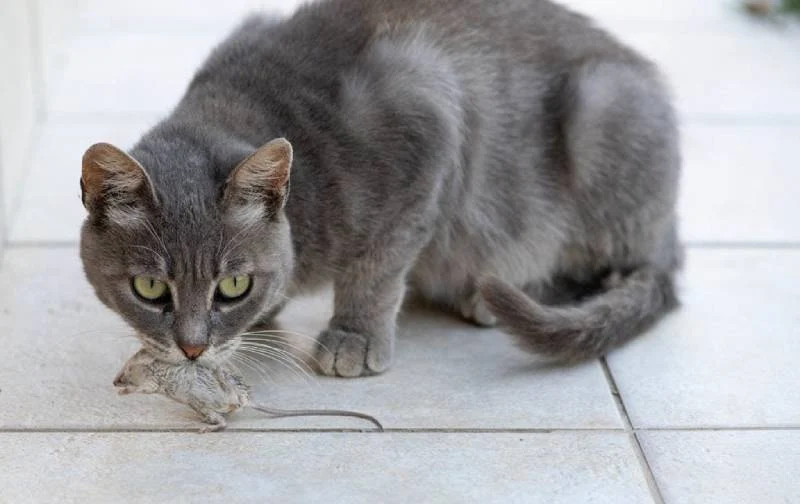
- 1. Understanding Cats and Their Gifting Instincts
- 2. Why Cats Bring Their Toys to You
- 3. The Hunting Gift: What It Means in Feline Behavior
- 4. How to Respond When Your Cat Brings You a Toy
- 5. Encouraging Healthy Play and Bonding with Your Cat
1. Understanding Cats and Their Gifting Instincts
If you’ve ever had your cat proudly drop a toy at your feet—or even meow insistently until you notice—it’s natural to wonder what’s going on in their furry little minds. While it may seem cute or puzzling, this behavior is rooted in ancient feline instincts. Cats are natural hunters, and even in a domestic setting, those predatory drives are alive and well. The act of “gift-giving” with toys mimics what they’d do in the wild with prey.
In the wild, mother cats often bring food back to their kittens to teach them how to hunt. Domestic cats don’t need to teach us survival skills, but they do adapt this instinctive behavior toward their human companions. It’s their way of sharing success, affection, and sometimes even seeking validation. In short, your cat isn’t just being playful—they’re communicating something meaningful.
2. Why Cats Bring Their Toys to You
When a cat brings you their toy, they might be expressing a range of emotions—from affection to excitement to boredom. Cats don’t communicate like dogs; they show appreciation and social bonding through actions rather than facial expressions. Toy gifting is one of the most fascinating ways they do this.

All Seasons Wild Bird Store
White Bear LakeRamsey CountyMinnesota
2703 Co Rd E East, White Bear Lake, MN 55110, USA
A Sign of Trust and Affection
Bringing a toy to you is often a sign that your cat views you as part of their family group. In their eyes, you’re either their “kitten” to teach or a trusted companion worthy of sharing their prized possession. This act is a compliment—it means your cat feels safe and bonded with you.
Seeking Attention or Playtime
Sometimes, your cat simply wants to play. By dropping a toy at your feet or bed, they’re inviting interaction. They may meow, paw at the toy, or stare at you expectantly, waiting for you to engage in a game of fetch or chase. This playful request is a healthy way for them to burn off energy and strengthen their connection with you.
Reinforcing Hunting Skills
Even indoor cats retain their hunting instincts. When your cat pounces on a toy mouse, carries it proudly, and drops it by your side, they’re mimicking the natural predator-prey cycle. It’s their way of showing they’ve “caught” something valuable—and now they’re sharing the victory.
3. The Hunting Gift: What It Means in Feline Behavior
Animal behaviorists refer to this act as the “hunting gift,” a deep-rooted behavior inherited from wild ancestors. In the wild, cats share prey with their family or social group as a sign of cooperation. When your cat brings you a toy—or worse, an unfortunate insect—they’re following the same instinctive pattern.
Evolutionary Insight
This behavior also fulfills an emotional need for cats. Hunting and presenting a “gift” provides a sense of purpose and accomplishment. Cats that lack outlets for these instincts may experience boredom or stress. That’s why providing stimulating toys that mimic prey movement—like feather wands or toy mice—can be essential for their well-being.
Different Personalities, Different Gifts
Not all cats exhibit this behavior equally. Some may bring toys daily, while others rarely do. Breeds like the Siamese or Bengal, known for high intelligence and strong hunting instincts, tend to display gifting behaviors more frequently. Observing how your cat “hunts” and presents items can give you insight into their unique personality and emotional needs.
4. How to Respond When Your Cat Brings You a Toy
When your cat offers you their toy, how you respond matters. Cats are sensitive to human reactions, and a positive response reinforces the bond you share. Instead of ignoring the gesture or pushing the toy away, take a moment to acknowledge their effort.
Positive Reinforcement
Thank your cat verbally in a calm, affectionate tone. Pet them or engage in short playtime to show appreciation. This reinforces their trust and encourages further healthy behavior. Even if they bring you the same toy repeatedly, consistency in your reaction helps them understand that their actions are valued.
Avoid Negative Responses
Never scold your cat for bringing you toys—or, in the case of outdoor cats, small animals. To them, it’s a natural instinct and a sign of love. Redirect their behavior gently by providing alternative toys or indoor play if you want to limit certain habits.
5. Encouraging Healthy Play and Bonding with Your Cat
Encouraging your cat’s hunting instincts through play is one of the best ways to maintain their mental and physical health. Scheduled play sessions not only satisfy their predatory drives but also strengthen your relationship. Feather teasers, laser pointers, and puzzle feeders all provide healthy stimulation.
Creating a Balanced Routine
Play for at least 10–15 minutes twice a day, especially if your cat is highly active. End each session with a “catch” moment—let them grab or bite the toy—to simulate a successful hunt. This closure leaves them feeling accomplished and content.
Finding the Right Toys
Every cat has unique preferences. Some love plush mice; others prefer crinkly balls or string toys. Experiment to discover what excites your cat most. For a selection of engaging and safe toys designed to tap into your cat’s natural instincts, visit Omnia Pet, where you’ll find high-quality play items that enhance both fun and fitness for your feline friend.
So, the next time your cat proudly brings you a toy, remember—it’s more than playtime. It’s a heartfelt gesture that bridges instinct, affection, and communication. In their own way, your cat is saying, “You’re part of my family.”



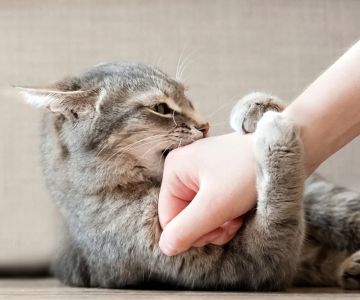
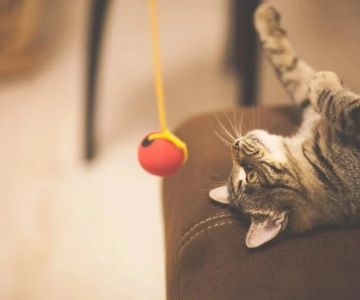
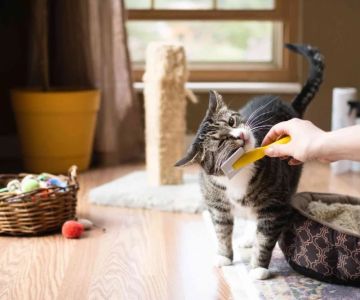

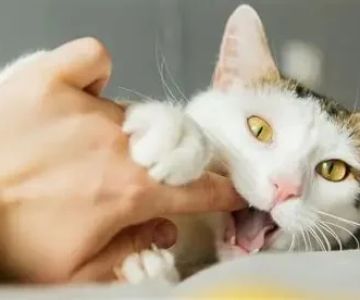
 Hollywood Feed4.0 (184 reviews)
Hollywood Feed4.0 (184 reviews) Brew Biscuits5.0 (2 reviews)
Brew Biscuits5.0 (2 reviews) All Friends Animal Hospital4.0 (446 reviews)
All Friends Animal Hospital4.0 (446 reviews) Kittylandkittens LLC0.0 (0 reviews)
Kittylandkittens LLC0.0 (0 reviews) Village Animal Clinic4.0 (212 reviews)
Village Animal Clinic4.0 (212 reviews) Rift Lake Aquatics4.0 (165 reviews)
Rift Lake Aquatics4.0 (165 reviews) Understanding Pet Insurance: What Does It Actually Cover?
Understanding Pet Insurance: What Does It Actually Cover? How to Keep Your Kitten's Eyes Clean and Free of Discharge
How to Keep Your Kitten's Eyes Clean and Free of Discharge The Truth About Heartworm Disease: Prevention is Cheaper Than Cure
The Truth About Heartworm Disease: Prevention is Cheaper Than Cure Why Is My Kitten's Belly Button Showing? | Omnia Pet
Why Is My Kitten's Belly Button Showing? | Omnia Pet Why Does My Cat Bite Me Gently? Love Bites Explained
Why Does My Cat Bite Me Gently? Love Bites Explained How to Stop Your Kitten from Getting into Cabinets
How to Stop Your Kitten from Getting into Cabinets